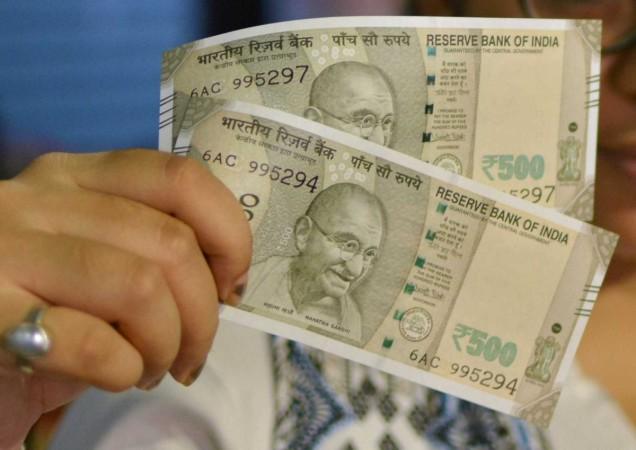
The Central government has managed to collect Rs 6,000 crore tax on unexplained cash deposits ever since Prime Minister Narendra Modi announced demonetisation of Rs 500 and Rs 1,000 currency notes on November 8, 2016, according to the Special Investigation Team (SIT) on black money.
According to reports, SIT's vice-chairman Justice Arijit Pasayat said on Friday that when people who deposited large sums of money in Rs 500 and Rs 1,000 notes after demonetisation till December 30, 2016 were asked about the money, many of them had decided to avail of the amnesty scheme announced by the government.
According to the scheme, if a person decides to declare money disproportionate to his or her means of income, he or she can pay 60 percent tax on the hitherto undeclared tax while receiving amnesty from future questions from the taxman on that undeclared amount. The tax was raised to 75 percent of the undeclared amount or black money after a point of time.
It is as part of this scheme that the government has managed to mop up taxes to the tune of Rs 6,000 crore. And the number may rise, with each day revealing more and more people who are revealing their black money in exchange for amnesty from prosecution on it.
Now, there are a number of areas where this money can be well spent. Here are some of them:
1. Food and water supply: Two of the most basic of human needs are food and water. This Rs 6,000 crore can be used to bring food and water to the people worst-affected by lack of these resources. And this can be especially important at a time when India is facing a harsh summer once again.
2. OROP payments: One of the biggest spends India is incurring now is the pension it has to pay to retired personnel from the armed forces as part of the One Rank One Pension (OROP) scheme. While Rs 6,000 crore is not even a 10th of the annual outlay of Rs 65,000 crore per year, it can sure be a start.
3. 7th Pay Commission recommendations: The 7th Central Pay Commission has put forward a number of recommendations for the increase of salary of Central and state government employees, and implementing them will put a serious strain on the state exchequer. This Rs 6,000 crore can ease at least some of that strain.
4. More clean energy research: Energy is one of the biggest demands in a developing country like India. With fossil fuels becoming increasingly non-feasible in light of the pollution control goals India is eyeing in the near future, research on more clean energy — to make it cheaper, more accessible and easier to adapt — is the need of the hour. This sum of Rs 6,000 crore is well suited for such a need.
5. India-wide internet access: Kerala recently decided that it would declare internet access a basic human right, and provide free internet to 20 lakh families, those who do not have access to it. The Central government can take this up on a nationwide basis, and divide the cost with the states and Union Territories. This could be part of the Central government and Modi's push for a Digital India, and also facilitate more digital payments.











